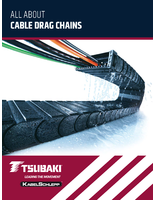Ford Super Duty to Lead Diesel Revolution with Cleanest, Quietest Power Stroke Engine Ever
All-new 2008 Ford F-Series Super Duty pickup will go on sale in early 2007 with a new 6.4-liter Power Stroke(R) Diesel that is Ford's cleanest and quietest diesel ever sold in America.
New ultra low-sulfur diesel fuel and advanced diesel particulate filter will provide particulate emissions levels that are equivalent to gasoline engines.
Ford to unveil the new Super Duty at the State Fair of Texas in Dallas on Sept. 28.
DEARBORN, Mich., Aug. 22 -- Ford (NYSE:F) will usher in America's clean diesel era when it introduces the all-new 2008 F- Series Super Duty pickup early next year. The truck's 6.4-liter Power Stroke(R) engine will be Ford's cleanest, quietest pickup diesel ever - with particulate emissions equivalent to a gasoline engine.
"Ford has built its truck reputation on innovation in design, capability and durability," said Mark Fields, Ford's president of The Americas, who will unveil the new pickup at the State Fair of Texas in Dallas on Sept. 28. "Clean diesel power will bring even more capability to our new Super Duty pickup - along with a new level of quietness and refinement. It's what you would expect from America's truck leader for nearly 30 years, and it's the sort of innovation you will see throughout our product lineup going forward."
The all new Power Stroke diesel engine will displace 6.4-liters, which is an increase in displacement from the current 6.0-liter V-8. It will be the first pickup engine in North America to use a high precision, high pressure, common-rail fuel injection system featuring piezo-electric injectors. These advanced injectors allow ultra precise timing of fuel injection for quietness and better emissions.
The new 6.4-liter Power Stroke features advanced emissions equipment, including a new diesel particulate filter that scrubs black smoke from exhaust gases and periodically cleans itself via advanced engine controls.
Pricing, fuel economy and engine specifications - including power and torque ratings - will be available closer to the vehicle going on sale in early 2007.
Diesels: The Most Capable Trucks
Diesel engines have become the powertrain of choice for heavy duty pickup truck buyers in the U.S. because they provide more torque for maximum towing and hauling.
The diesel engine's torque advantage comes, in part, because the fuel is ignited with compression - the piston's compression stroke is so intense that the fuel combusts spontaneously. The process is far more efficient than igniting fuel with spark plugs, as in gasoline engines.
Since 2001, annual diesel truck registrations have increased from about 400,000 vehicles in 2001 to more than 500,000 today, and Ford has long been the industry leader.
Ford has sold 1.3 million diesel-powered F-Series pickups in the U.S. since 2001. On an annual basis, Ford sells more diesel-powered pickup trucks than Chevrolet and Dodge combined. Nearly three-quarters of all Ford Super Duty trucks are sold with the Power Stroke diesel.
Ford is engineering in even higher levels of quality into the new Power Stroke engine, and will continue to offer the industry's best warranty and roadside assistance package, which covers diesel engines for 5 years or 100,000 miles.
America's Diesel Revolution Begins
Helping to fuel future growth in the U.S. are new low-sulfur fuels that make diesels cleaner to operate. As of October 2006, U.S. governmental regulations will require ultra low-sulfur diesel fuel to be available across the country.
High sulfur content in diesel fuel tends to clog the most advanced diesel engine emissions controls, in much the same way that lead formerly used in gasoline damaged catalytic converters. The new fuel will contain 97 percent less sulfur than conventional diesel, with the sulfur reduced from 500 parts per million (ppm) to 15 ppm.
The new fuel is compatible with the Ford Super Duty trucks that are already on the road, including models with the 6.0-liter and 7.3-liter Power Stroke diesel engines.
Compared with the diesel engines of 10 years ago, today's diesels have 80 percent lower particulate emissions, 70 percent lower nitrogen oxide (NOx) emissions and 15 percent improved fuel consumption, according to the Diesel Technology Forum.
The U.S. EPA estimates that emissions of particulate matter will be further reduced by 250,000 tons per year, and emissions of NOx will be reduced by 4 million tons per year, when the entire U.S. diesel engine fleet has been fully turned over to clean diesel technology by 2030.
Since diesel engines are able to extract more energy from a given quantity of fuel, they can also help reduce CO(2) emissions through improved fuel economy.
The U.S. Department of Energy estimates that a 30 percent penetration of clean diesel technology in the U.S. passenger vehicle market by 2020 would reduce net crude oil imports by 350,000 barrels per day.
Ford Committed to Clean Technologies
Ford Motor Company is committed to introducing innovative technologies that improve fuel economy, reduce vehicle emissions and reduce the country's reliance on imported oil. These include vehicles that can run on E-85 ethanol, including the flex-fuel F-150, and hybrids, such as the Ford Escape and Mercury Mariner.
In addition, Ford is a leader in hydrogen internal combustion engines, and will deliver more than 20 shuttle buses equipped with the engines to customers this year. Ford also is actively engaged in research on other bio-fuels and is deploying advanced engine and transmission technologies across its powertrain lineup.
CONTACT: Nick Twork, +1-313-598-0481, ntwork1@ford.com; or Wes Sherwood, +1-313-390-5660, wsherwoo@ford.com, both of Ford Motor Company




